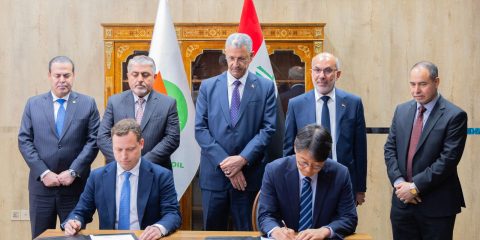Despite landmines, snakes and dodgy gin, Iraq is an archaeological paradise
Before the very first time I was going to excavate in Iraq, back in 2012, I have to admit I was a little apprehensive; I mean who wouldn’t be? Thankfully the university running the project completely allayed my fears by sending me on a chemical, biological and nuclear weapons training-day, followed up with a course […]Mary Shepperson writes for The Guardian:
Before the very first time I was going to excavate in Iraq, back in 2012, I have to admit I was a little apprehensive; I mean who wouldn’t be? Thankfully the university running the project completely allayed my fears by sending me on a chemical, biological and nuclear weapons training-day, followed up with a course on unexploded ordnance and not stepping on landmines. After this I was so wholly put at ease that I thought about maybe staying at home instead.
The chemical precautions for this first project were thought necessary because we were excavating on the outskirts of Halabjah; the Kurdish town which was bombed with chemical weapons in 1988. There was a possibility that unexploded chemical shells might have buried themselves in the ground just where we happened to dig our trenches. I feel the balance of probabilities to be heavily in our favour on this particular risk, but it looks like I’ll be back there in the spring to have another go at getting poisoned. In three seasons of work I found nothing worse than some anti-aircraft rounds and a nest of baby snakes. The risks of archaeology in Iraq are generally overstated.
Iraq is in fact an archaeological paradise. There’s more archaeology in the country than archaeologists will ever be able to get to grips with or maniacs will be able to destroy. The five projects I work on in Iraq are spread across the Kurdish north and the Shia south (leaving the problematic area in the middle well alone) and they cover periods from the 5th millennium BC, at the little site of Gurga Çhiya, to the Ottoman remains on the magnificent Citadel of Erbil.





